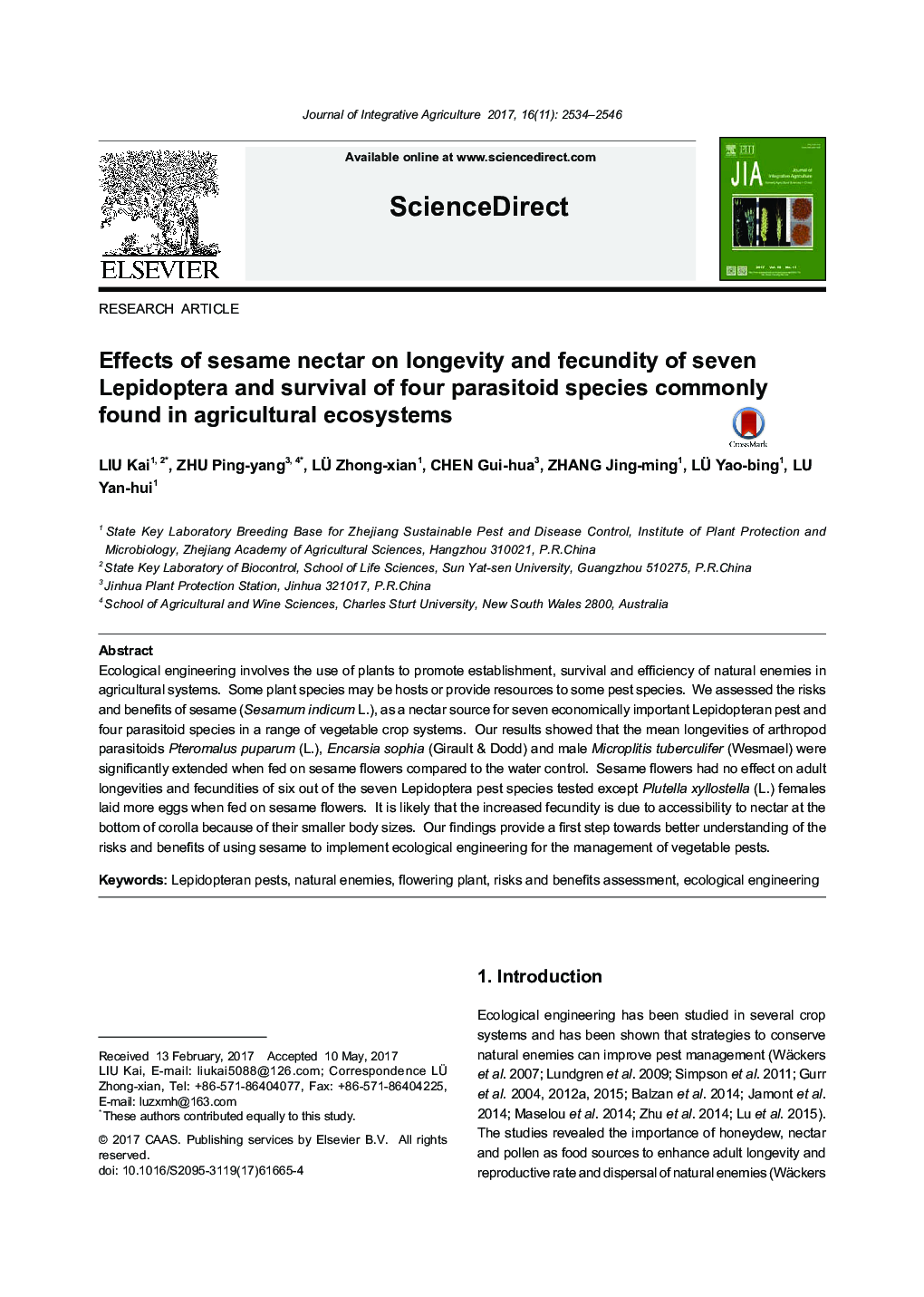| Article ID | Journal | Published Year | Pages | File Type |
|---|---|---|---|---|
| 8875805 | Journal of Integrative Agriculture | 2017 | 13 Pages |
Abstract
Ecological engineering involves the use of plants to promote establishment, survival and efficiency of natural enemies in agricultural systems. Some plant species may be hosts or provide resources to some pest species. We assessed the risks and benefits of sesame (Sesamum indicum L.), as a nectar source for seven economically important Lepidopteran pest and four parasitoid species in a range of vegetable crop systems. Our results showed that the mean longevities of arthropod parasitoids Pteromalus puparum (L.), Encarsia sophia (Girault & Dodd) and male Microplitis tuberculifer (Wesmael) were significantly extended when fed on sesame flowers compared to the water control. Sesame flowers had no effect on adult longevities and fecundities of six out of the seven Lepidoptera pest species tested except Plutella xyllostella (L.) females laid more eggs when fed on sesame flowers. It is likely that the increased fecundity is due to accessibility to nectar at the bottom of corolla because of their smaller body sizes. Our findings provide a first step towards better understanding of the risks and benefits of using sesame to implement ecological engineering for the management of vegetable pests.
Related Topics
Life Sciences
Agricultural and Biological Sciences
Agricultural and Biological Sciences (General)
Authors
Kai LIU, Ping-yang ZHU, Zhong-xian LÃ, Gui-hua CHEN, Jing-ming ZHANG, Yao-bing LÃ, Yan-hui LU,
